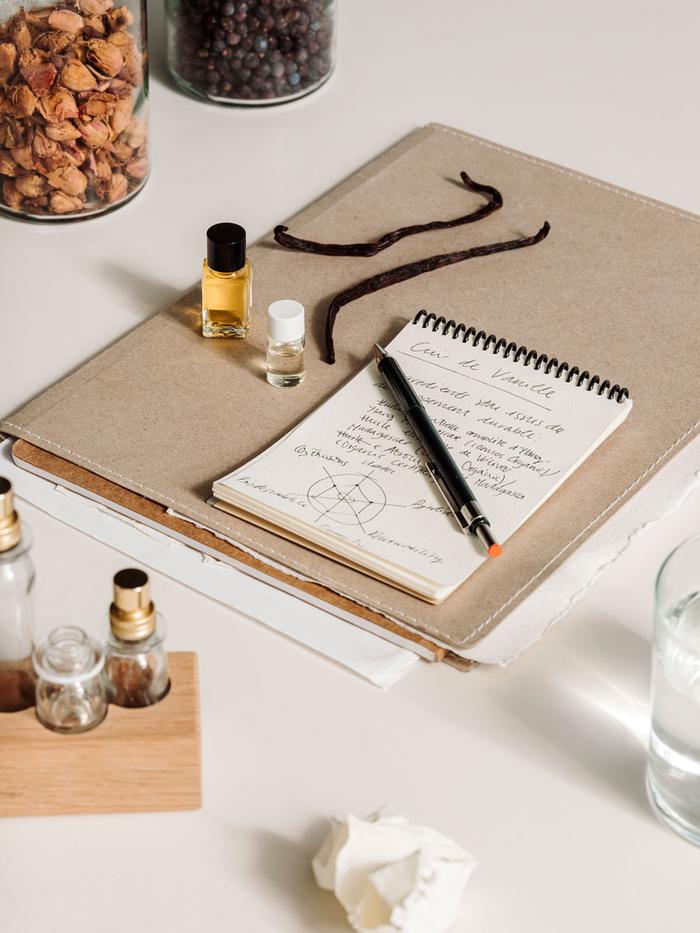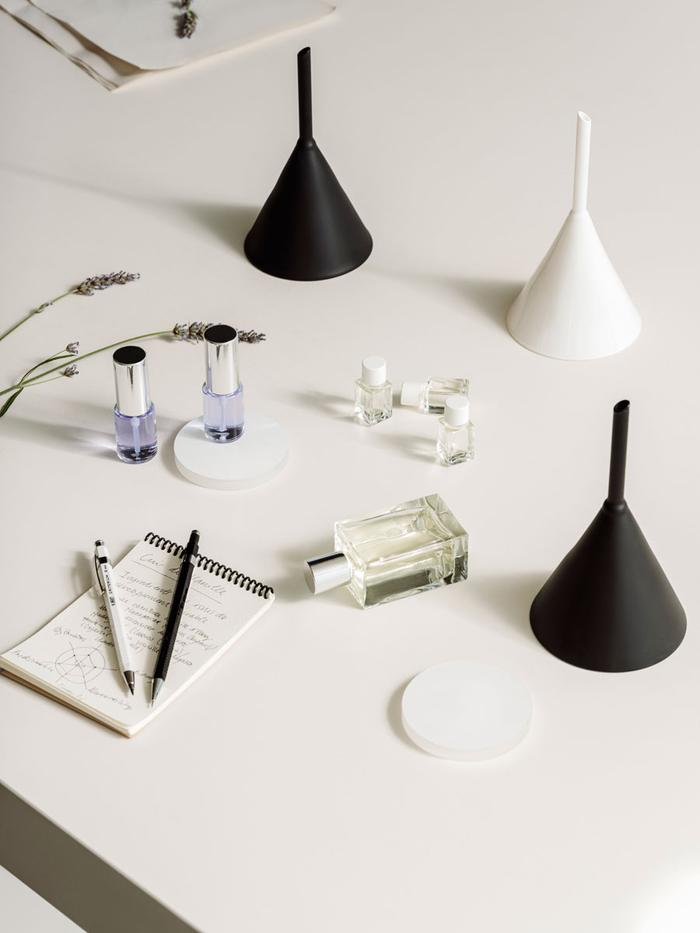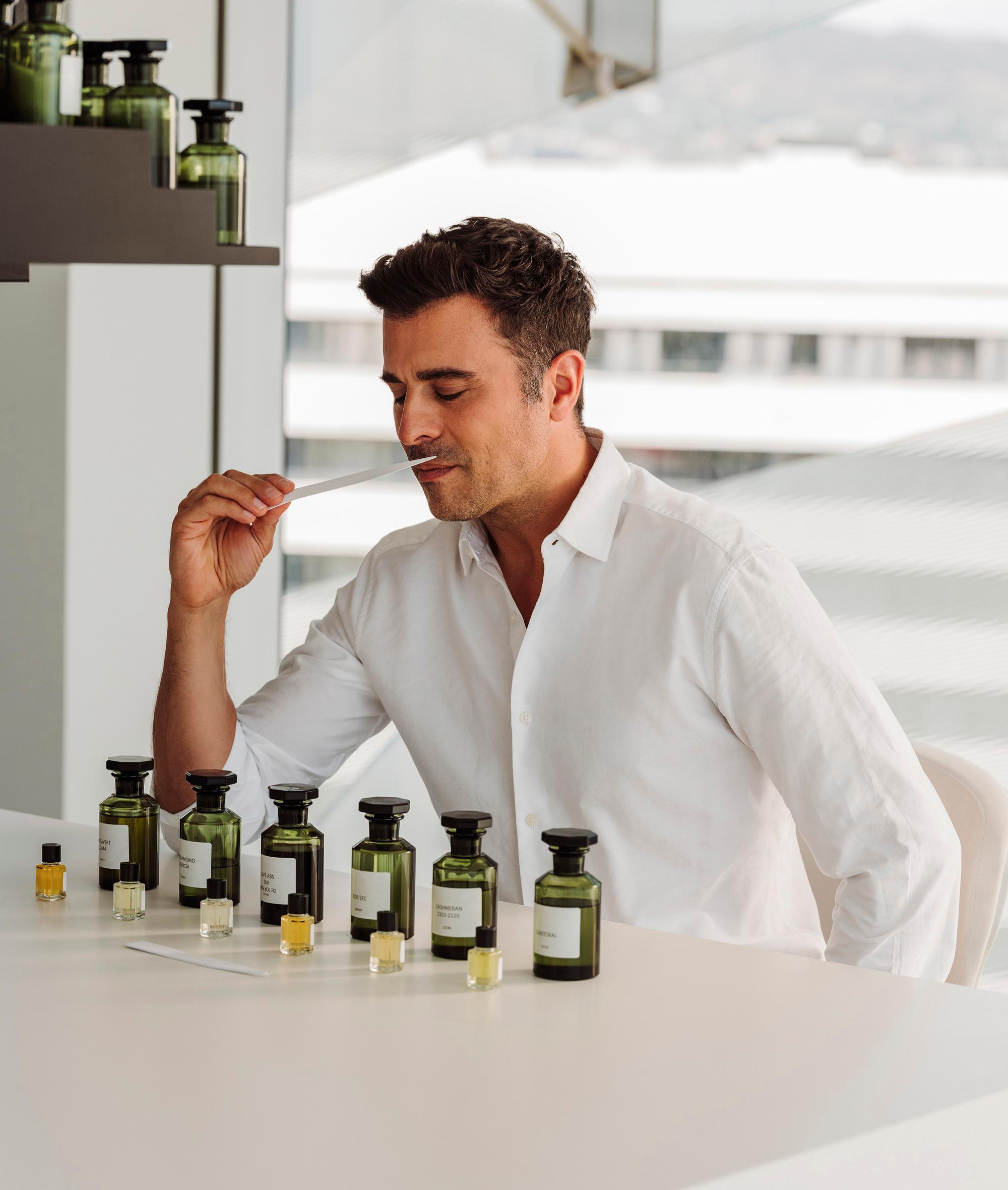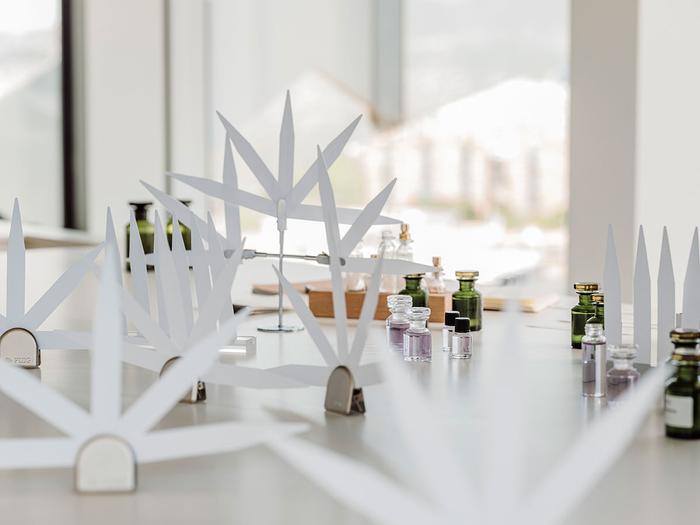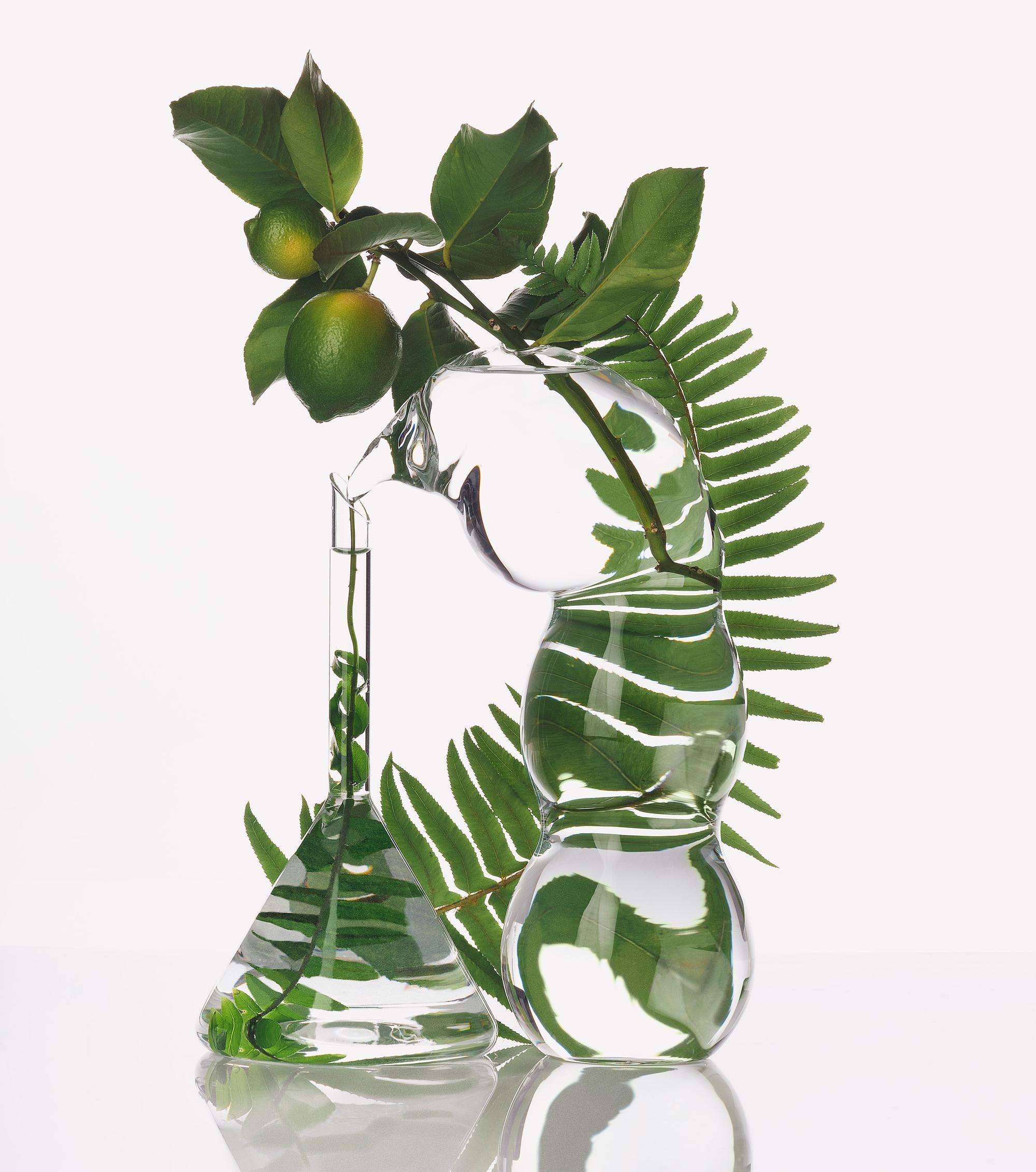Once the idea is clear, the work of the perfumer, also known as the nose, begins. With the ingredients and notes decided, he has to think about how to structure and harmonize them. The perfumer then has two options, either to create the fragrance from scratch, or to start from one or several formulas and add ingredients to them. Great perfumers have their own olfactory library, with numerous formulas to achieve the desired accords. Whatever the option, the perfumer begins his creative process and designs the desired perfume.
At this point it is important to talk about the selection of raw materials. From natural ingredients, coming from different corners of the planet, to synthetic ingredients that will complete the formula. Raw materials are obtained through different processes, among which synthesis stands out, allowing the reproduction of aromas that cost a lot to obtain, that are very expensive or that do not exist in nature.
To reach the desired product, the perfumer makes several tests that will be weighed. The formula is the list of ingredients and the quantities of each one of them. At this point it is important to keep in mind the olfactory pyramid to be able to order the notes and ingredients according to their volatility and importance.
